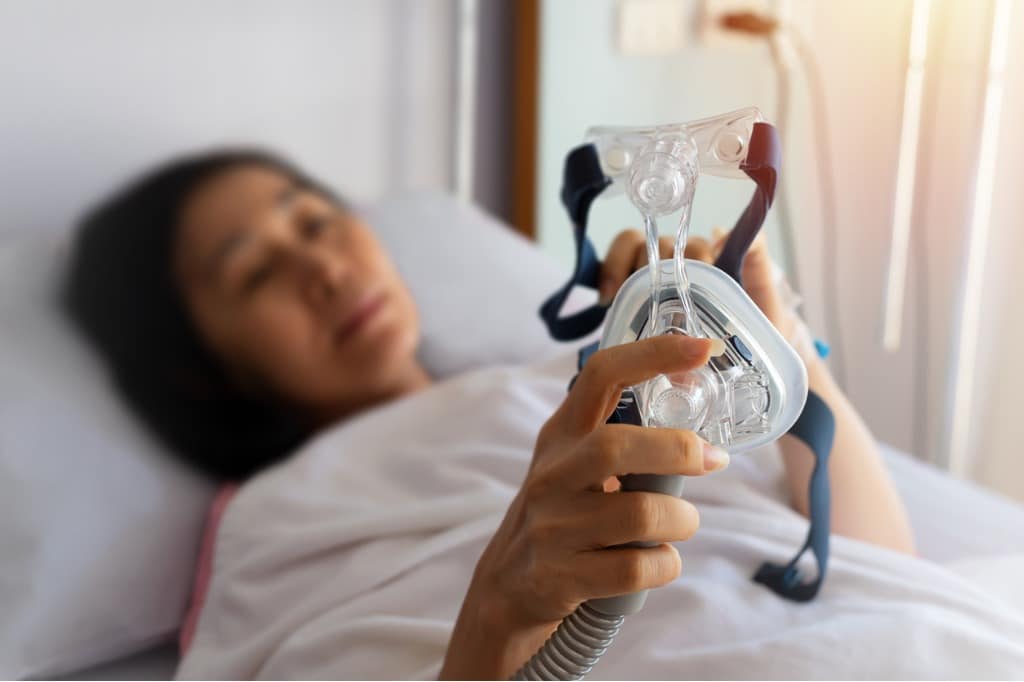Obstructive Sleep Apnea Treatments Besides CPAP
- Posted on: Feb 26 2020

It’s an interesting oddity in the field of sleep medicine that patients are told they have obstructive sleep apnea but not told the reason they have it. Similarly, they are usually given a prescription for a CPAP and no discussion is made of the other options that may be available to treat this condition. Even when patients return to their doctor with a complaint that the CPAP isn’t working or they cannot tolerate the therapy, they are basically told to keep trying with no explanation on why it may be failing for them.
obstructive sleep apnea (OSA) has 6 main causes.
Each of these should be explored in a patient with the diagnoses of OSA to see if treatments may be available.
- Nasal congestion/sinus issues – this is the primary driver for OSA in many patients. Identification and correction of this issue may reduce the OSA or provide a cure in some cases. Interestingly, this nasal congestion/sinus issue may also be the reason why the CPAP didn’t work, as pumping pressure through a closed nose is not an effective strategy. I can’t tell you the number of patients that have told me about all the different masks, chin straps, BiPAP, trials they had without success, while they kept telling their doctor that they can’t breathe through their nose.
- Large tongue – this is a very frequent cause of OSA. A large tongue may just be genetic, as people who are quite stocky, with shorter necks, tend to have large tongues. Frequently, the tongue may also enlarge as we gain weight. Surprisingly, the main cause of a large tongue is actually nasal congestion. It turns out that mouth breathing dehydrates the tongue and the tongue responds by enlarging. Treatments for the tongue are limited. First and foremost, if there is nasal congestion causing the tongue to expand, this must be corrected. Weight loss can reduce the tongue size and expand the space available for the tongue. Positional therapy (such as the Medcline pillow system) places the patient in an ideal position to help keep the jaw and tongue forward. Lastly, a well-fitted custom oral appliance, made by a sleep dentist, is a great option to treat tongue-based OSA and snoring, if the nasal congestion has been resolved.
- Long soft palate and uvula – this is a more rare cause of OSA and snoring. When a patient has had nasal congestion for some time, the restricted nasal airway creates a suction current that can stretch and elongate the soft palate and uvula. Treating the underlying nasal issues is the first step, but a special “thermal fusion” technique can be done to shorten the uvula and stiffen the soft palate in appropriate cases to create further correction of the OSA and snoring.
- Large tonsils – this is another more rare cause of OSA in the adult population. Frequently, it is mouth breathing from nasal congestion that causes chronic tonsil inflammation, tonsil stones, and tonsil enlargement, so correcting nasal congestion issues is the first step to treating this issue. If the tonsil size is an independent remaining issue causing OSA and snoring, tonsillectomy as an outpatient procedure can be additionally done to help reduce these conditions.
- Weight gain – this is a common cause of OSA and snoring. The catch 22 is that snoring and OSA from nasal congestion and/or a large tongue disrupt the depth and quality of sleep creating a metabolic slowdown and associated weight gain. As we work on identifying and correcting the issues above, it tends to be easier for the patient to lose weight and keep it off.
- Sleep hygiene – this is the final issue but an important one. When we go to bed exhausted, sleep flat on our back, have sedatives such as alcohol before bed, and don’t treat our allergies, we will all be more likely to have snoring and OSA. Dedicating time to sleep, avoiding alcohol for two hours before bedtime, sleeping in a position with the head higher than belly, sleeping on our side, and using appropriate allergy prevention such as allergy drops can make a huge positive impact on this condition.
Contact Us
If you have been told you have obstructive sleep apnea but not why or if you have been given a CPAP but not had any other options for the treatment described to you, Contact us today at 512.601.0303 to schedule an appointment for a comprehensive evaluation and a detailed plan for treatment.
Tagged with: Best Sleep Position, CPAP alternatives, obstructive sleep apnea, Sleep apnea
Posted in: Sleep Apnea

